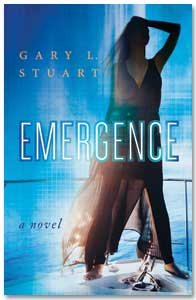Fareed Zakaria is a writer, journalist, and political commentator. He is well read, has a large audience, and writes exceptionally cogent pieces. He writes what he knows, and he knows a lot about wars, countries, and international relations. One of his most recent columns focused on the war in Ukraine, which he called a “Top-down attack against a bottom-up response.”[1]
What is a top-down attack? And does it always generate a bottom-up response? One definition of a “top-down” attack is one that takes advantage of exposed soldiers at the top of a tank. Another is war jargon for higher-altitude top-down attacks where air support is lacking.
The phrase bottom-up versus top-down shows up in psychology discourse. That’s how emotions are treated in the mental health world. Bottom-up emotional responses are immediate, ingrained responses to a stimulus. Top-down emotions are how we think about a stressful situation.[2] And there is a top-down versus bottom-up control in our ecosystem.[3]
So, what do these different uses for common phrases mean in an ethical context? They mean writers must take care to make clear phrases. Clarity is an ethical imperative.
Dr. Zakaria was careful to explain his use of top-down attacks and bottom-up responses in his piece on Ukraine war. He used them as metaphors for the fact that the invasion of Ukraine is largely “one man’s decision.” Vladimir Putin. Ukraine’s response is “society-wide, starting with its elected government but involving almost all of the country’s citizens.” Putin, on the other hand is “recruiting from prisons, offering cash bounties and employing mercenaries.”
And that sourcing, resourcing, and participation goes to how the invader is failing and a country is surviving. He sums up by saying, “One key aspect of the astonishing advance of Ukraine’s army in the east—and the astonishing collapse of Russian forces—is the gap in morale.”
The second ethical imperative in writing about war is conclusion. When we write to inform or persuade, we should reach a conclusion. Gaps in morale are also gaps in conclusions. One can explain the other.
And for a broader look at the ethics of war, I should refer readers to my May 28, 2021, blog, Writing About War. “War fascinates, denigrates, and populates. Its core appeal and its turnoff is violence. It is politically necessary, avoided religiously, and speaks to death like nothing else, save pandemics. It presents challenges to writers because it is as ethical as it is unethical. How we write about war requires constant attention and incessant evaluation. It must not be left to politicians whose reputations and electability depend on it.” [4]
There is a book-length treatment of the ethical bounds in a series of essays published in 2017. It is an anthology of the ethics and law of war by eminent scholars who first challenged the orthodoxy of Just War theory, as well as by “second-wave” revisionists. It consists of twelve original essays.[5]
Lieutenant General H.R. McMaster is a former National Security Advisor. He has written and spoken extensively about military ethics.[6]
Arguably the oldest and most erudite voice on this topic is Andrew Carnegie. He believed that law, international accountability, and the spread of knowledge could put an end to war. Over 100 years since its founding, Carnegie Council has become one of the world’s top creators of nonpartisan educational resources on international ethics. It offer a variety of free resources to teach the concept of “ethics and war” in high school and college social studies, history, and humanities classrooms.[7]
[1] https://www.washingtonpost.com/opinions/2022/09/15/ukraine-democracy-society-morale-advantage-russia/
[2] https://www.mentalhelp.net/blogs/bottom-up-or-top-down-how-we-generate-emotions/
[3] https://eco-intelligent.com/2018/04/26/the-top-down-vs-bottom-up-approach-in-an-ecosystem/
[4] https://ethicsofwriting.com/2021/05/the-ethics-of-writing-about-war/
[5] https://academic.oup.com/book/7553
[6] https://www.justsecurity.org/37977/mcmaster-ethics-war/
[7] https://www.carnegiecouncil.org/explore-engage/classroom-resources/resources-on-ethics-and-war-peacemaking-genocide-and-environment/ethicsinwarcontent

I am an author and a part-time lawyer with a focus on ethics and professional discipline. I teach creative writing and ethics to law students at Arizona State University. Read my bio.
If you have an important story you want told, you can commission me to write it for you. Learn how.






 I am an author and a part-time lawyer with a focus on ethics and professional discipline. I teach creative writing and ethics to law students at Arizona State University.
I am an author and a part-time lawyer with a focus on ethics and professional discipline. I teach creative writing and ethics to law students at Arizona State University.  My latest novel is Emergence, the sequel to Let’s Disappear.
My latest novel is Emergence, the sequel to Let’s Disappear.  If you have an important story you want told, you can commission me to write it for you.
If you have an important story you want told, you can commission me to write it for you.